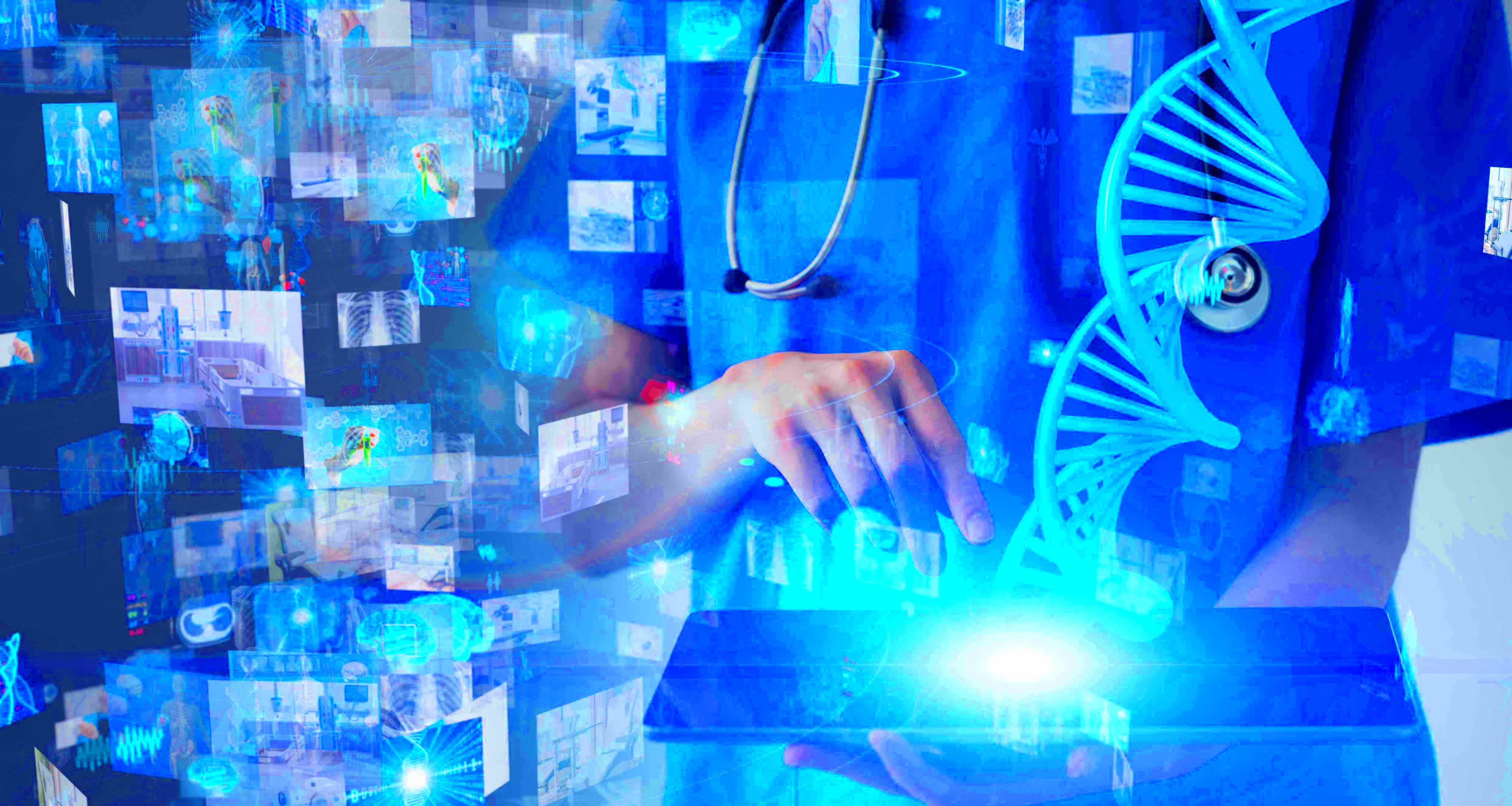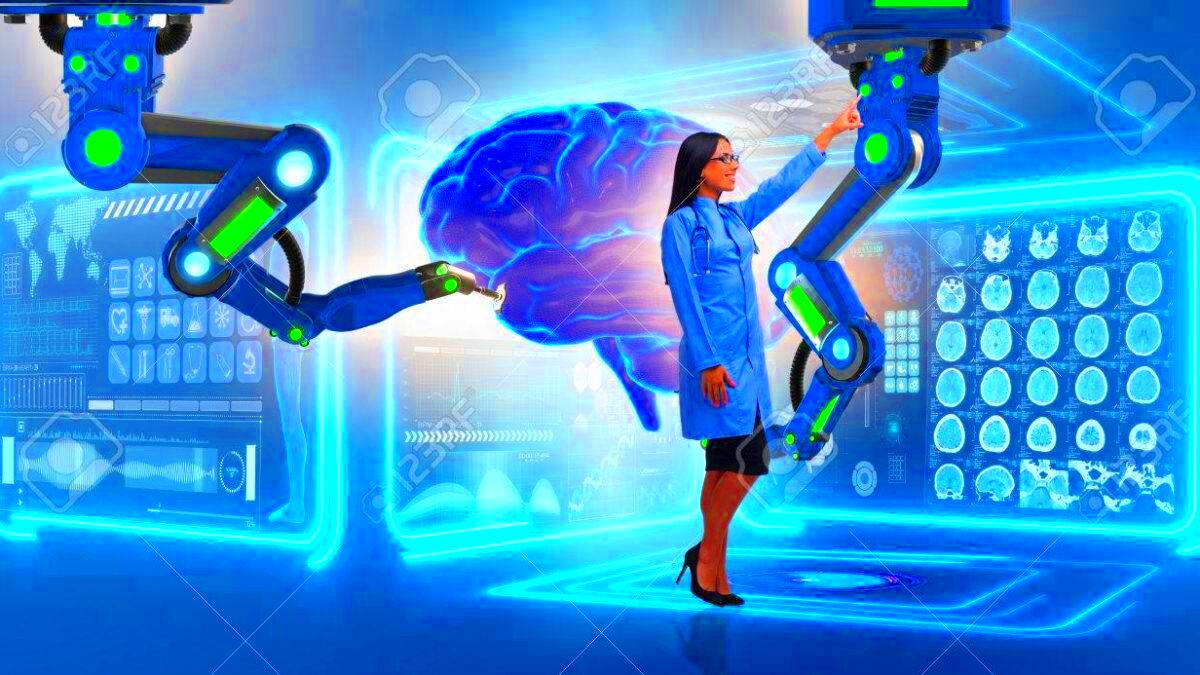The era of fast evolution in healthcare has been ushered by the introduction of fascinating technologies. With them, patients can access healthcare simply while doctors can diagnose and treat diseases more accurately. Ranging from AI to telemedicine, they encompass a spectrum of health care changes. This article will examine some of the most powerful technologies that are altering the face of this industry at present.
Artificial Intelligence Transforming Patient Care

In health care, artificial intelligence (AI) is being a game changer. It helps in fast data analysis thus giving the providers accurate diagnoses at an early stage. Here’s how AI is making a difference:
- Predictive Analytics: AI algorithms can predict potential health issues by analyzing patient history and data trends.
- Diagnostic Assistance: Tools like image recognition can assist radiologists in detecting diseases in medical images, improving accuracy.
- Personalized Treatment Plans: AI can suggest tailored treatment options based on individual patient data.
To sum up, Artificial intelligence is helping to refine and enhance medical services which results in improved results for all involved parties.
Telemedicine and Its Impact on Access to Health Services
We have seen a complete transformation of accessing health care due to telemedicine. Patients can now consult doctors from different locations without ever having to see them face-to-face, which is particularly advantageous for individuals who reside in the remote regions or experience movement problems. Below are some of its major advantages:
- Convenience: Patients can see their doctors from the comfort of their homes, reducing the need for travel.
- Increased Accessibility: Individuals who may have difficulty accessing traditional health services can now receive care.
- Time-Saving: Virtual appointments often require less waiting time than in-person visits.
Besides promoting continuity of care and thereby making it easier for patients to manage their health, telemedicine enhances access to health services.
Wearable Technology Enhancing Health Monitoring
In healthcare, wearable
technology is gaining more and more popularity every passing day. It is through gadgets such as smartwatches and fitness trackers that users have been able to keep an eye on their health status as it happens. The devices can monitor different aspects of a person’s life including heart rate and quality of sleep offering them better understanding of their wellness. The following are some of the reasons why wearable
technology is considered a revolutionary thing:
- Real-Time Monitoring: Wearables continuously collect data, allowing users to see how their body responds to activities or stress.
- Health Alerts: Many devices can notify users of irregularities, such as an abnormal heart rate, prompting timely medical attention.
- Encouragement for Healthy Habits: With features like step tracking and exercise reminders, wearables motivate users to stay active.
This kind of device gives individuals the power to control their well-being resulting to better results and more consciousness on individual health.
Blockchain Technology Improving Health Data Security
It is well-known that the security of health data is a big concern in the current age of data breaches, and blockchain
technology provides a credible solution to this problem. This decentralized system guarantees safety for medical records and allows only deserved users to access them. Below are some notable benefits:
- Enhanced Privacy: Blockchain encrypts patient data, making it nearly impossible for unauthorized parties to access sensitive information.
- Data Integrity: The technology creates a tamper-proof record of patient information, ensuring accuracy and reliability.
- Streamlined Information Sharing: Providers can share data seamlessly, improving collaboration and care coordination.
Managing of health information is set to be revolutionised by blockchain
technology through enhancement of security and accessibility features.
Robotics in Surgery and Rehabilitation
Robotics has advanced greatly in surgery and rehabilitation thereby improving precision and results for patients. Surgical robots offer better help to surgeons in their complex procedures.
Here is the way these areas are being changed by robots:
- Minimally Invasive Surgery: Robots enable smaller incisions, resulting in less pain and quicker recovery times for patients.
- Enhanced Precision: Robotic systems provide surgeons with improved dexterity and visualization during procedures.
- Rehabilitation Robotics: Robotic devices are also used in rehabilitation to assist patients in regaining mobility after injury or surgery.
In combination with reducing recovery times and improving rehabilitation processes, improved surgical outcomes are not only possible by installing robots into hospitals; moreover, this innovation also enriches the overall life of these patients as it helps keep them longer in hospitals after surgery.
Personalized Medicine Tailoring Treatments for Patients
In the area of health care, personalized medicine is making a difference by looking at individual patients as opposed to treating everyone alike. As such, this kind of treatment is specifically meant to suit them depending on their genetic makeup, way of life, and environment. The following are some important features of personalized medicine:
- Genetic Testing: Doctors can use genetic tests to identify how a patient will respond to certain medications, helping to choose the most effective treatments.
- Targeted Therapies: Instead of using standard therapies, personalized medicine allows for treatments that specifically target the underlying causes of a disease, improving effectiveness.
- Preventive Strategies: By understanding a patient’s genetic risks, healthcare providers can develop strategies to prevent diseases before they occur.
The method enhances treatment effectiveness in a patient-centered manner and it also decreases the probability of side effects thereby leading to a better health care experience for patients.
Frequently Asked Questions
Some Frequently Asked Questions Regarding Health Care’s New Technologies:
What is telemedicine?
- Telemedicine allows patients to consult with healthcare providers remotely using technology, making it more accessible.
How does AI improve patient care?
- AI analyzes data to assist in diagnoses, predict health issues, and recommend personalized treatment plans.
What are the benefits of wearable technology?
- Wearables help monitor health metrics, alert users to health issues, and encourage healthier habits.
Is personalized medicine safe?
- Yes, personalized medicine uses genetic information to minimize side effects and tailor treatments effectively.
Contacting your health care provider is fine if you still want to ask more questions.
Conclusion on the Future of Health Care Technology
The outlook of medical
technology seems clear and very promising. The continuing evolution of emerging technologies such as Artificial Intelligence (AI), telemedicine, wearable devices, blockchain and robotics shows that they will improve efficiency, accessibility and personalization in healthcare delivery. To note are the following key elements::
- Increased Efficiency: Automation and AI can streamline processes, reducing wait times and improving patient outcomes.
- Greater Access: Telemedicine and mobile health solutions make it easier for people to receive care, no matter where they live.
- Empowered Patients: Wearable technology and personalized medicine give patients more control over their health journeys.
In order to have a future where everyone has access to quality healthcare, industry players must adopt such improvements.
 In health care, artificial intelligence (AI) is being a game changer. It helps in fast data analysis thus giving the providers accurate diagnoses at an early stage. Here’s how AI is making a difference:
In health care, artificial intelligence (AI) is being a game changer. It helps in fast data analysis thus giving the providers accurate diagnoses at an early stage. Here’s how AI is making a difference:
 admin
admin








